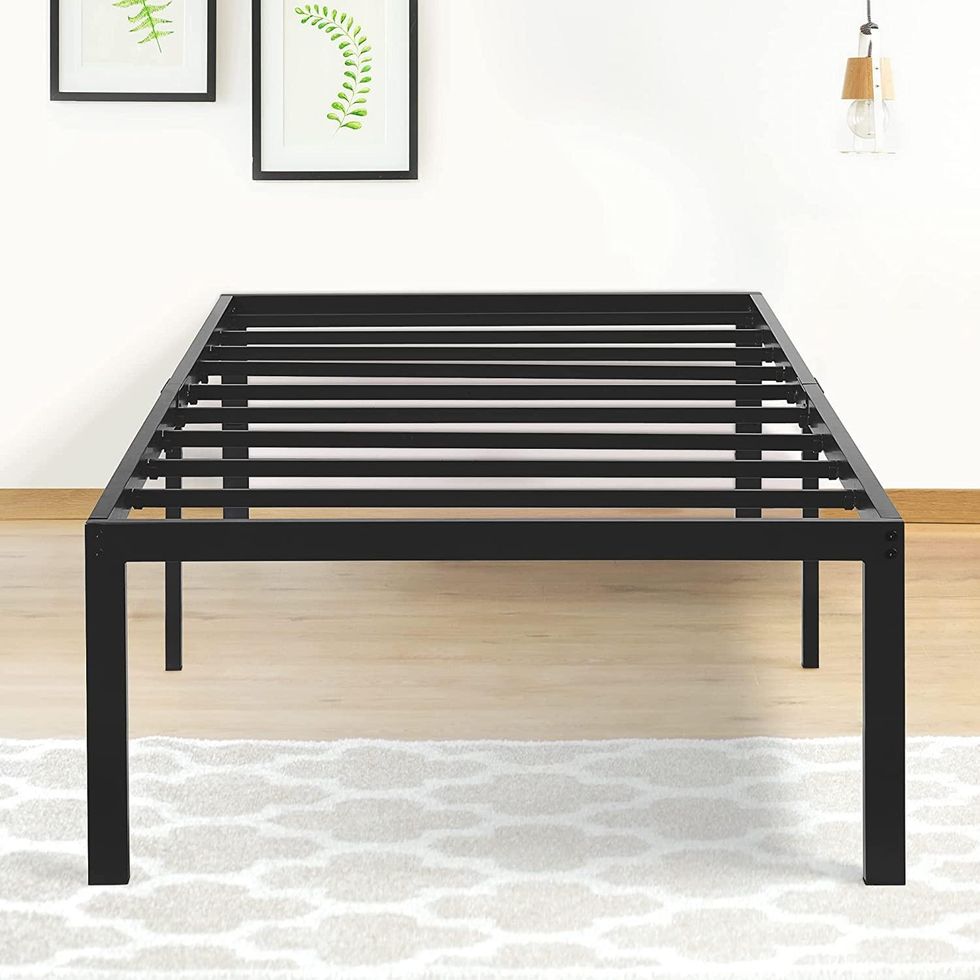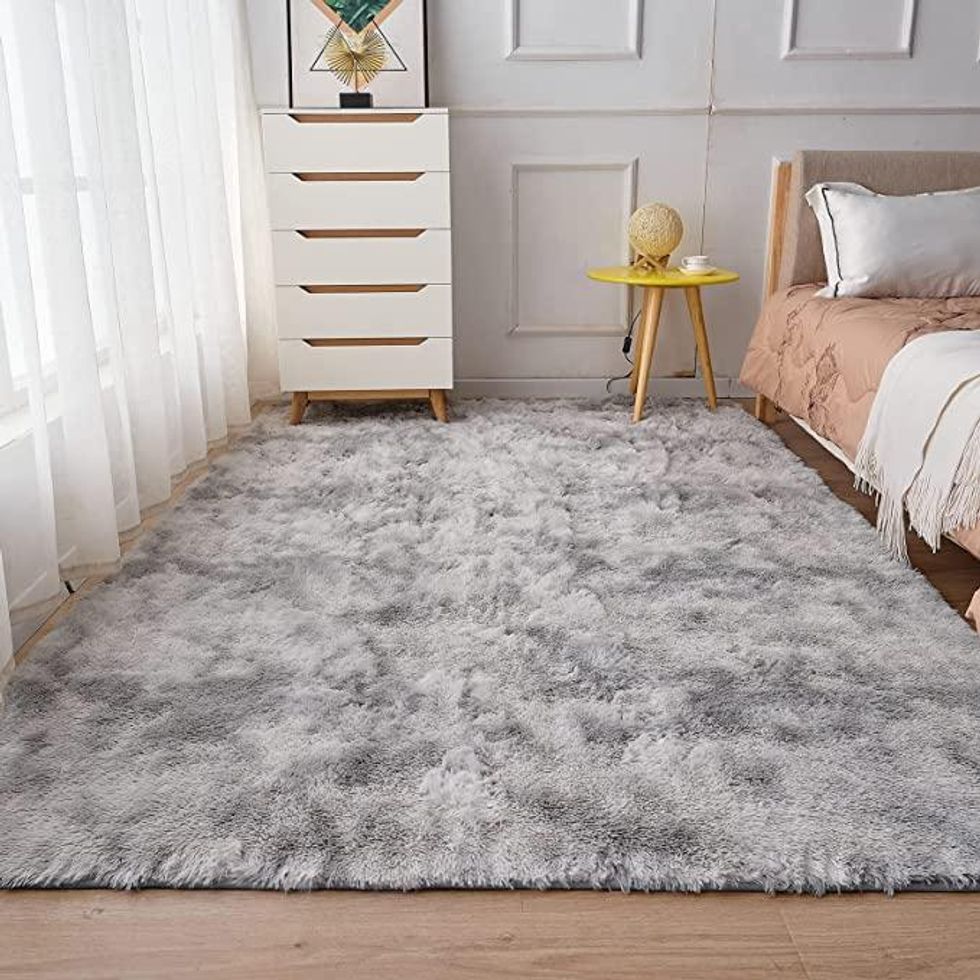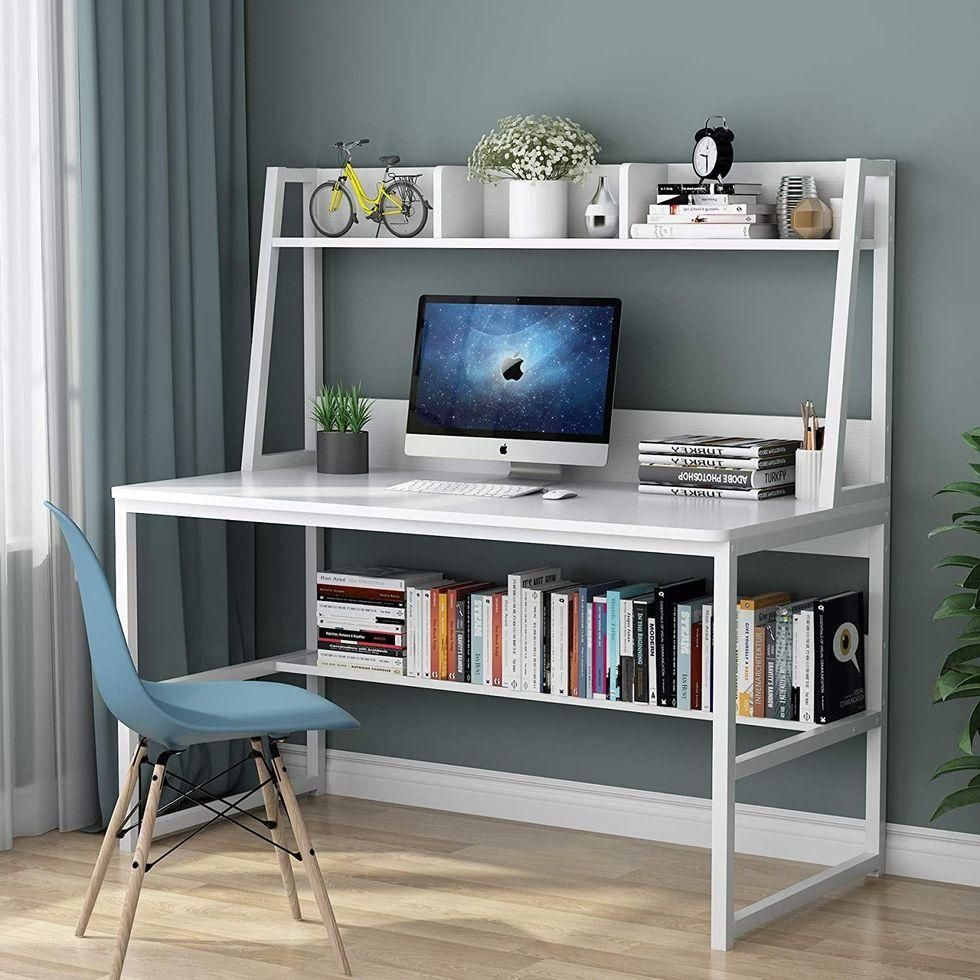Sometimes, less really is more.
Small Bedroom Ideas That Will Actually Maximize Your Space

Chloe Williams serves as B+C’s Entertainment Editor and resident Taylor Swift expert. Whether she’s writing a movie review or interviewing the stars of the latest hit show, Chloe loves exploring why stories inspire us. You can see her work published in BuzzFeed, Coastal Review, and North Beach Sun. When she’s not writing, Chloe’s probably watching a Marvel movie with a cherry coke or texting her sister about the latest celebrity news. Say hi at @thechloewilliams on Insta and @popculturechlo on Twitter!
I just moved into my first apartment in New York City and even though I knew that rooms in the city were small, I don't think anything could have prepared me for the actual logistics of moving into a room this tiny. Not only do you have to figure out how to arrange your furniture, but if you're like me, you have to work around heating pipes, fire escapes, and doorways that are at an angle.
Because of how much time we spend eating cozy food, watching movies, and all-around hibernating during the winter, now is the perfect time to tackle a home improvement refresh. Whether you're also tackling life in the big city or you're moving into a studio or tiny house, here are some tips and tricks for living in a small space, as well as some products that I can really and truly recommend since I have them in my room ;).
Small Bedroom Ideas
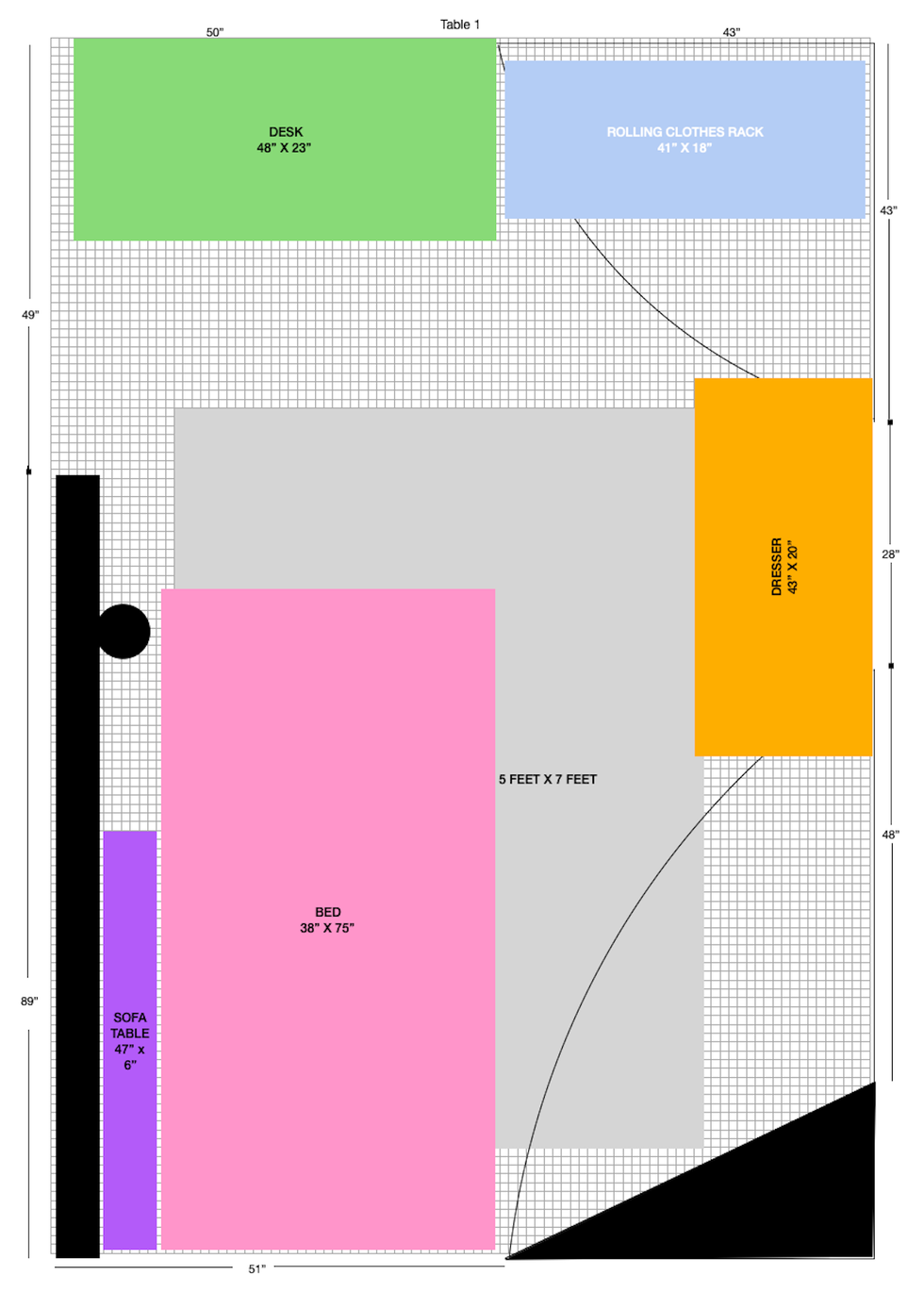
Measure Your Room + Make A Spreadsheet
Look at your room like you would a scale model — measure the distance between the walls, the doors, and the windows (you'll also want to get the measurements of your furniture) so that you can create a spreadsheet. The easiest way to do this is to turn one inch into one square on your sheet so that it's an even ratio.
Whether or not your room has an unconventional design, it's essential to know how much space you're working with. This is the spreadsheet that I use (shoutout to my mom for helping me with this), and it was super helpful to get a bird's eye view of the room and how the furniture fits together.

Start From The Ground Up
Choosing a light-colored rug with a low-key pattern (or no pattern at all) can make the room feel brighter and larger. You can also come up with a color strategy for furniture and bedspreads since lighter colors reflect light and make the space feel more open. But just because you choose neutral and bright bases doesn't mean the rest of your room has to be neutrals. Check out our 2022 color trends for some ideas!
One super easy tip for making your setup as seamless as possible is to set up your rug first, then add your bed frame, and do your remaining furniture last. That way you can adjust the rug and bed frame without having to move heavy furniture every single time.
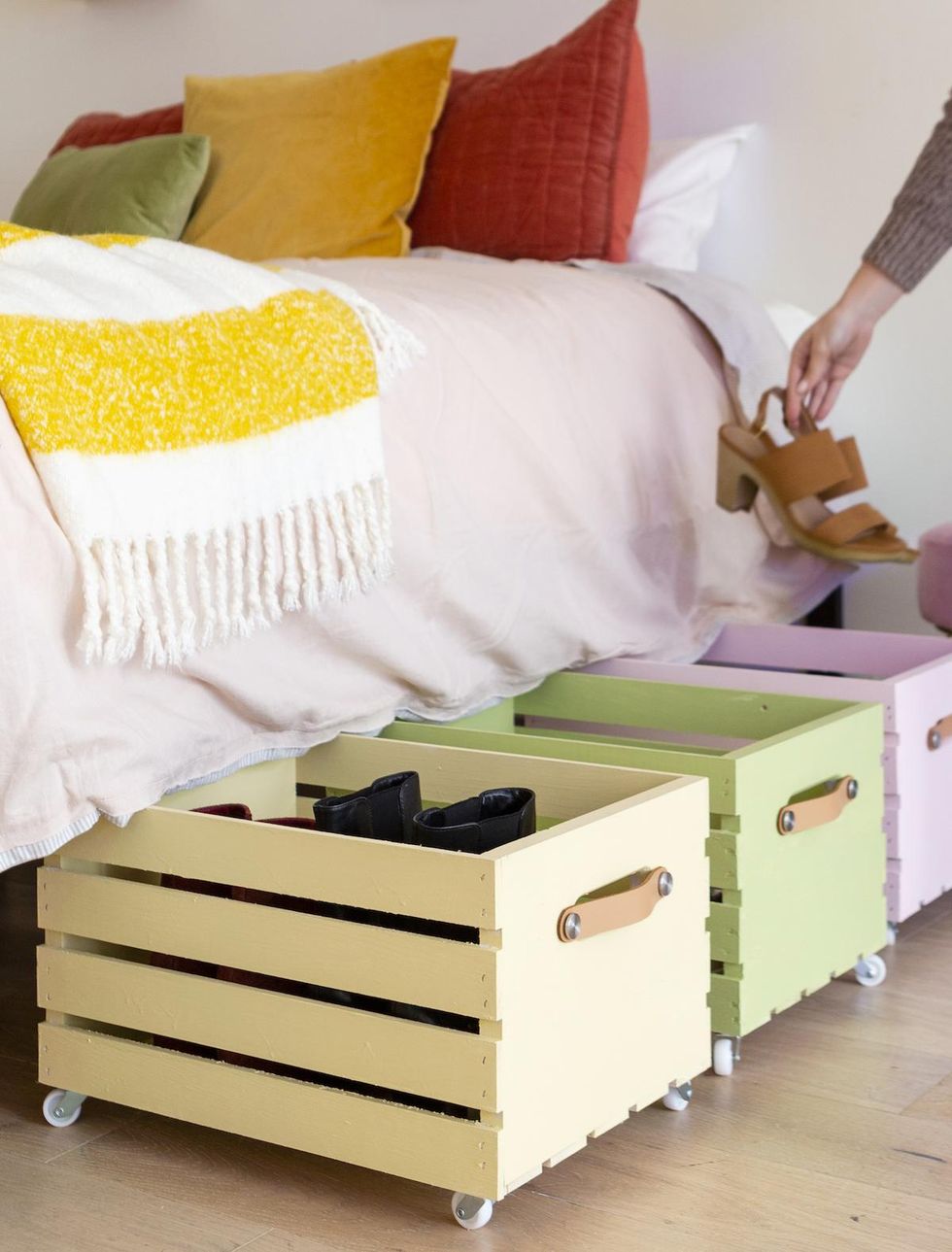
Use Every Inch Of Space
When you live in a large room with multiple storage options, you might not use every available space... because you don't need to. But when you're working with a small room, you want to be as intentional as possible. The space under the bed is one place that you simply cannot waste when you don't have a ton of room. Get a tall bed frame or risers so you can put tubs of next season's clothes, seasonal decor, and things from your childhood that don't need to be on display. Or opt for a lofted bed instead!
There is also a ton of potential in your vertical space. Add accessory organizers and extra shelves to your walls, and choose tall and skinny pieces instead of short and wide ones. They'll give you similar storage, without taking up the same amount of floorspace. You can also utilize the top of a dresser, doorknobs, and the back of your door.
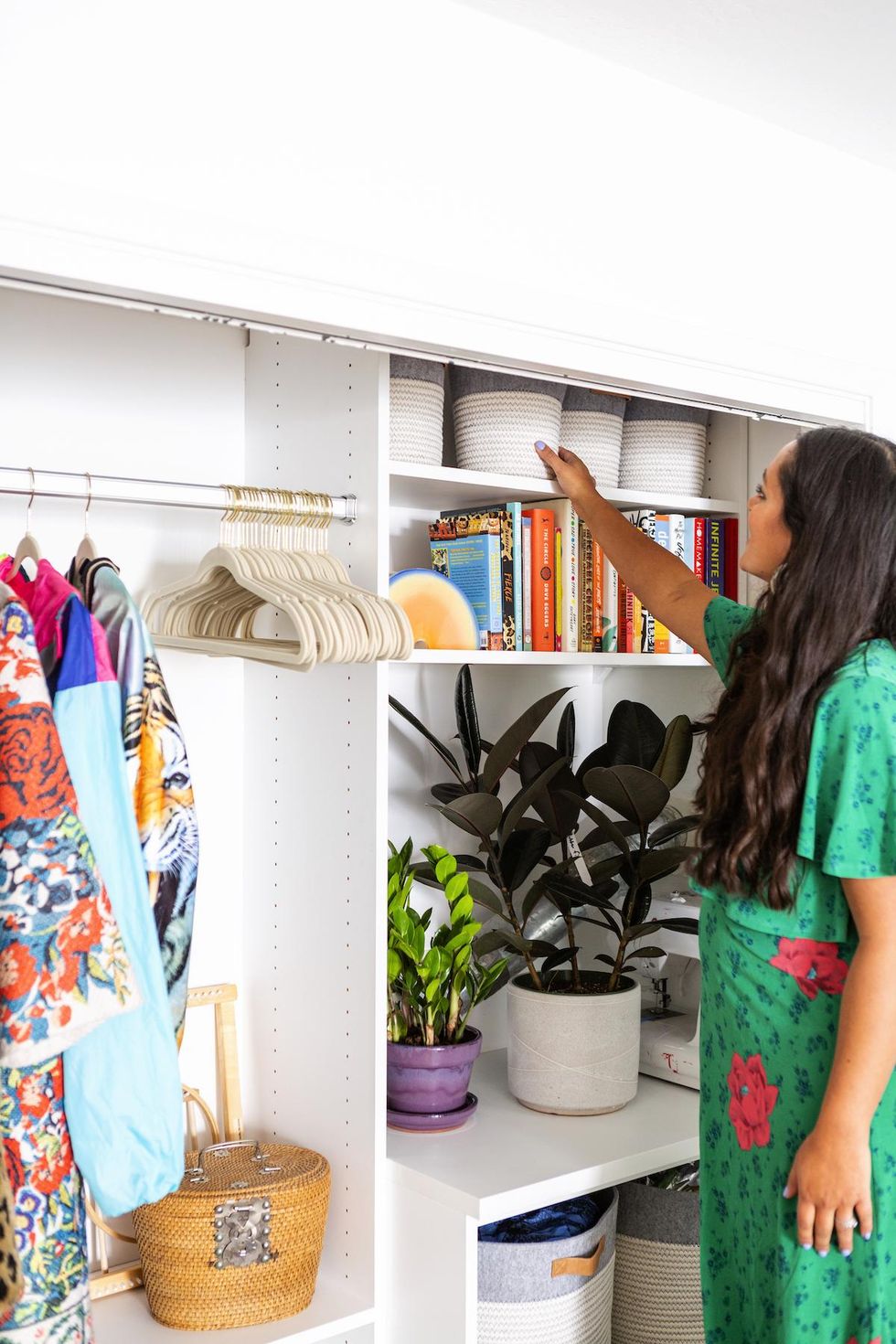
Get Unconventional + Multifunctional Pieces
If your room is unconventional, then your furniture should be too! Squeeze a sofa table in between your bed and the wall if you don't have room for a regular bedside table, and get a desk with a shelf above and below the actual workspace. If you don't have a closet, you can grab a double clothing rack to fit twice the amount of clothes, or try this hanger hack to fit more clothes into your regular rack.
Even if you're working with less decor than you'd like, there are still plenty of luxury decor hacks you can include to make your room look expensive, without the price tag. Make sure every piece pulls double duty so that it looks good and you can put it to use, like a hamper that doubles as decor or beautiful jars from your latest trip that double as jewelry holders. Here are some more tips for making a small space feel bigger!
Tag us with your small space creations on Instagram and check out our Pinterest and email newsletter for more home inspiration.
Brit + Co may at times use affiliate links to promote products sold by others, but always offers genuine editorial recommendations.



